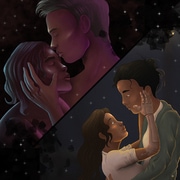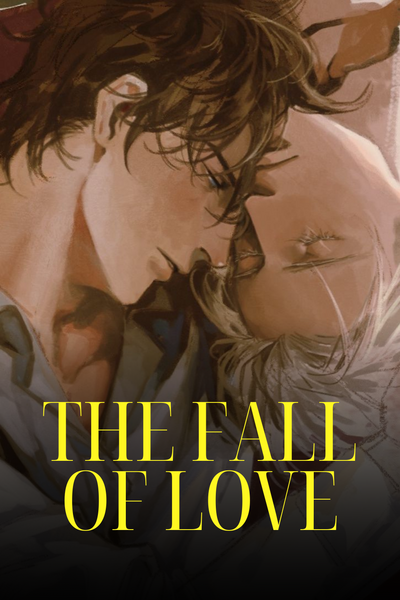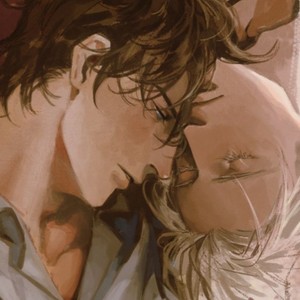Eons stretched behind him, an endless cascade of entwined lives and fleeting passions, all orchestrated by his hand. Eros, the eternal god of love, sat upon his throne of stars, a golden bow resting idly at his side. To mortal eyes, he was radiant perfection: golden hair falling like sunlight over his shoulders, eyes like the embers of an eternal flame, and a presence that made even the heavens sigh in longing. Yet within, there was a hollowness—a quiet ache that echoed through the vastness of eternity.
He had seen it all. Gods and mortals alike had fallen to his arrows, their hearts ignited with the fire of love. Yet Eros remained untouched by the very force he wielded. Love, to him, was a thing observed, a melody composed but never sung. It was predictable, a dance with steps he knew too well. And so, as time passed, the god of love grew weary of his craft.
“This,” he whispered to no one, his voice carrying through the celestial halls, “is the curse of eternity. To create love but never know it.”
On a whim—a fleeting desire for distraction—Eros rose from his throne. He descended to Earth, his form shimmering into invisibility as he stepped into the mortal realm. The city of Seoul greeted him with a symphony of life. The clamor of footsteps on crowded sidewalks, the hum of engines, and the distant murmur of laughter filled the air. Neon lights painted the streets with a kaleidoscope of color, and the sharp scent of rain lingered as storm clouds parted to reveal a pale moon.
Eros wandered aimlessly, blending into the tide of humanity. There was something intoxicating about mortals—fragile yet fierce, ephemeral yet striving. He watched a young couple exchange shy smiles on a street corner, their hands brushing as they reached for the same book in a vendor’s stall. Farther down the street, an elderly man held his wife’s hand with a tenderness that spoke of decades of shared memories. Such moments, small and fleeting, were why Eros loved his work, even as it left him untouched.
Then he saw him.
Julius Graham.
Among the sea of faces, Julius’s presence struck Eros like a lightning bolt. He stood alone, leaning against the wrought iron railing of a bridge overlooking the Han River. The world seemed to blur and quiet around him, leaving only the young man’s silhouette against the soft glow of city lights reflected in the water. His raven-black hair framed a face that was both boyish and impossibly beautiful, yet it was not Julius’s beauty that held Eros spellbound—it was his aura.
Melancholy clung to him like mist, intertwining with a quiet strength. His eyes, dark as midnight, held a sorrow so profound that Eros, a god who had witnessed the grief of entire civilizations, felt his chest tighten. Clutched in his hand was a small sketchbook, its pages worn and stained with the fingerprints of countless hours. Julius opened it, and though Eros could not see its contents, he felt the weight of emotion pour forth like a silent cry.
“Who are you?” Eros murmured, his voice trembling with something he could not name.
For the first time in his endless existence, the god of love felt... desire. But it was not the shallow yearning he had so often kindled in others. This was something deeper, more profound. He did not merely wish to possess Julius; he wanted to understand him, to unravel the mystery of the sorrow etched into his soul.
As Julius turned to leave, his gaze momentarily lifting to the heavens, Eros felt an unfamiliar pang of longing. It was as though the mortal’s eyes had pierced the veil of the divine and seen him—not as a god, but as something vulnerable, yearning, incomplete.
“This mortal,” Eros whispered, his golden bow suddenly heavy in his grasp. “What is it about you that moves me so?”
The god of love, who had never known love himself, now stood at the precipice of a dangerous desire. He had no way of knowing that this single moment, this mortal soul, would set into motion a chain of events that would unravel his existence and change the course of his eternity.
For in Julius, Eros saw not only a muse but a mirror—a reflection of the loneliness he had hidden from even himself.
The god of love, master of hearts, was about to embark on a journey that would test the very essence of his being. And for the first time in his immortal life, Eros was afraid.












Comments (2)
See all